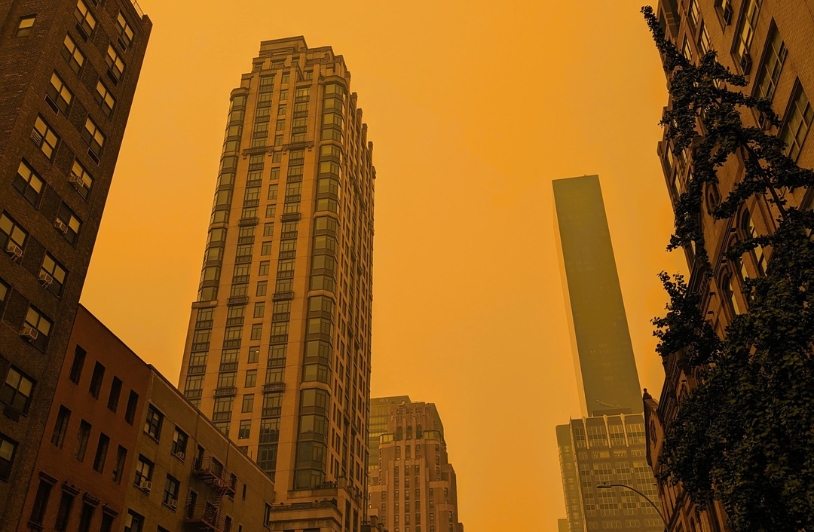What Struck Us All for a Couple of Days Is a Passing Sense of Vulnerability in an Increasingly Brutal World
OK, the sky in New York and other eastern cities leaned towards darkness, even orange colors, and you could smell smoke in air that feels dense and tasted smoke. In New York, it reminded people of the unforgettable smell after the Jan. 11 attacks.
The official ruling was that smoke from hundreds of Canadian wildfires drifted our way, and that the swirling off-and-on winds are keeping it in place for a couple of days, and temporarily forcing some of the worst pollution on the planet.
Yes, it is exactly what residents in California, or some mid-Western areas have been feeling for a while, and yes, the plethora of wildfires is another marker for those seeking signs of climate change effects, and yes, it means that those in New York, Philadelphia and Washington needed to get out their masks again if they wanted some immediate separation from pollutants.
But more than the physical effects, what struck us all for a couple of days is a passing sense of vulnerability in an increasingly brutal world. In that sense, it seems to offer an insight into when and how we are open to accepting information about our world.
It seems noteworthy that we’re much more willing to recognize a problem that we insist that we can see in discolored air than we are dangers more invisible.
What always seems to accompany these moments is the silence of our political leaders, who are still willing to re-fight public health suggestions for distancing and mask-wearing to prevent the spread of covid but that refuse to recognize climate change effects.
Visible Threats
The literal threat of two days of poor air quality clearly remains less than that posed by promises of more covid-like pandemics, sprawling mental health crises in a Wild West America of automatic-style rifles, or the daily attacks on our individual rights in the name of someone’s idea of what patriotism should mean.
Attacks on democracy are invisible, as are racism, hate, and hunger. Inflation is invisible, as is the decline in institutional trust. The long spool of threats against an FBI and Justice effort to ensure that the rule of law is bigger than any one individual, including Donald Trump, contains its own invisible thread of danger.
Maybe invisibility explains why, in the face of making public the lengthy and rather specific details in the new Donald Trump indictment, we have political fans on the Right refusing to acknowledge his wrongdoings.
All of it should be putting pressure on us to look at the effects rather than the immediate discoloring physical effect of our smoke and fog.
It seems terribly unimaginative of us.
We are much more accepting of what we see with our own eyes than any scientific, legal, or social science trend information that may ask us to re-consider our pre-formed opinions.
Of course, none of that meant that people would wear masks again for a couple of days – buses and subways in New York showed a large number with masks — but any individual “research” will be based on what proponents or objectors can report seeing in the orange air.
The widespread desire to complain about something over which we have no control seems a tangible human trait. The desire to complain rather than to try to fix the underlying conditions – in this case to build government and business policies that combat climate change – seems distinctly human. As a species, we apparently like to complain.
Once the air is turning smoky orange, it is too late to think that we can reasonably expect to douse dozens of simultaneous wildfires. The trick in public planning is to turn policymaking to preventive solutions.
How about if we made that the standard for choosing our political leadership?




